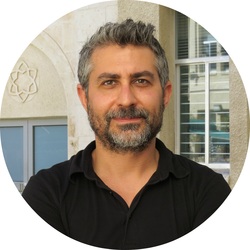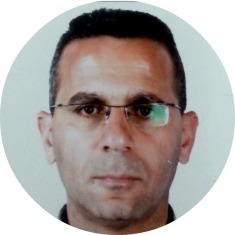Omar Dewachi is Assistant Professor of Anthropology and Global Health at American University of Beirut (AUB). Trained as a physician in Iraq during the 1990s, Dewachi received his doctorate in social anthropology from Harvard University in 2008. His research explores the social and medical consequences of war in the Middle East with focus on Iraq. Dewachi teaches a variety of courses on social medicine, global health and medical anthropology at AUB. He is the co-Director of the Conflict Medicine Program at AUB and was one of the contributors to the Costs of War Project at Brown University. His manuscript, Ungovernable Life: War and Mandatory Medicine in Iraq is forthcoming with Stanford University Press, Spring 2017. The book is based on archival and ethnographic research, chronicling the politics of medicine and statecraft in Iraq from the British mandate (1920-1932) through the US occupation (2003-2011). He is currently conducting ethnographic research on the ecologies of wounds and wounding in an increasingly militarized Middle East. The project examines the experiences of patients, doctors and institutions with war afflictions, displacements, and the reconfigurations of healthcare geographies across the East of the Mediterranean states.
Changing Ecologies of War and Humanitarianism
Omar Dewachi, Jonathan Whittall
A conversation on the changing nature of humanitarianism from an academic and a practitioner’s perspectives.
-
{{langos!='ar'?item.title.split(',')[0]:item.arTitle.split(',')[0]}}
{{langos!='ar'?item.title.split(',')[1]:item.arTitle.split(',')[1]}}{{item.duration | hhmmss}}
Guests


Jonathan Whittall is Head of Humanitarian Analysis for Médecins Sans Frontières. He is based out of Beirut and can be found on Twitter @offyourrecord.
Jonathan Whittall is currently Head of Humanitarian Analysis for Médecins Sans Frontières, where he coordinates an MSF reflection and analysis unit within the General Directorate in Brussels. This team conducts research and analysis on the politics of health and humanitarian aid in conflict. In this role, Jonathan has worked extensively on providing strategic support to MSF operations in Afghanistan, Pakistan, Lebanon, Syria, Ukraine and South Sudan, among other conflict contexts.










